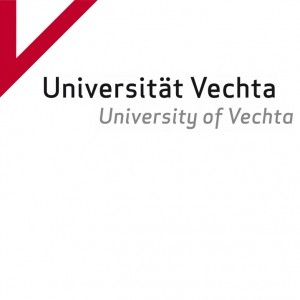Photos of university
The Bachelor of Arts in Social Work at the University of Vechta is a comprehensive undergraduate program designed to prepare students for a rewarding career in the social sector. This degree program emphasizes a holistic understanding of social issues, human development, and community engagement, equipping students with the theoretical knowledge and practical skills necessary to support individuals and groups facing various challenges. Throughout their studies, students explore key topics such as social policy, ethics in social work, counseling techniques, and methods of intervention, fostering a deep commitment to social justice and equal opportunity. The program combines rigorous academic coursework with hands-on practical experience, including internships and community projects, to bridge the gap between theory and practice. Students are encouraged to develop their communication, problem-solving, and intercultural skills, which are vital in diverse social settings. The curriculum is designed to foster critical thinking, reflective practice, and ethical responsibility, ensuring graduates are well-prepared for professional roles in social services, child and youth welfare, healthcare, and community development. The Department of Social Work at the University of Vechta values a supportive learning environment that promotes dialogue, ethical integrity, and lifelong learning. Graduates of this programme will be capable of working independently and collaboratively within multidisciplinary teams, managing complex social issues with professionalism and compassion. The program also offers opportunities for specialization in areas such as childhood and youth welfare, elderly care, migration, and integration. Upon successful completion, students will earn a Bachelor of Arts degree, opening pathways to further academic pursuits or immediate employment in the social sector. The University of Vechta is committed to fostering socially responsible professionals who contribute positively to their communities and society as a whole.
The Bachelor's Degree in Social Work at the University of Vechta offers a comprehensive and practical education designed to prepare students for a wide range of professional roles within social services and related fields. The program emphasizes the development of theoretical knowledge, practical skills, and ethical competencies necessary for working effectively with diverse populations in various social contexts. Throughout their studies, students explore key topics such as social justice, intervention techniques, social policy, and community development, equipping them to address complex societal challenges and support vulnerable groups.
The curriculum combines core courses in social sciences, psychology, law, and ethics with specialized modules in social work practice, counseling, case management, and project planning. Hands-on learning is a central component of the programme, enabling students to apply theoretical concepts through internships, fieldwork, and project work in real-world settings. This practical experience aims to foster professional competence, cultural sensitivity, and reflective practice, which are essential qualities for effective social work practice.
Moreover, the program encourages students to develop critical thinking skills and a holistic understanding of social issues, empowering them to advocate for social justice and contribute to positive social change. The collaborative learning environment at the University of Vechta also promotes teamwork, intercultural competence, and communication skills, preparing graduates to work effectively within multidisciplinary teams and diverse communities.
Graduates of the Social Work program at the University of Vechta are equipped to pursue careers in various sectors, including child and youth welfare, elderly care, addiction counseling, psychosocial support, and community development. They may also find opportunities in policy advisory roles, social research, and nonprofit organizations. The program aims to produce socially responsible professionals who are committed to lifelong learning and continuous professional development, ensuring they remain effective and compassionate practitioners throughout their careers.
The program is designed to be completed in six semesters, culminating in a bachelor's degree that qualifies graduates for entry into master's programs, including advanced social work studies or related disciplines. Overall, the Social Work program at the University of Vechta offers a balanced blend of theoretical knowledge, practical skills, and ethical grounding, preparing students to make meaningful contributions to society through dedicated and competent social work practice.
Program requirements for the Bachelor of Social Work at the University of Vechta include a combination of academic prerequisites, language proficiency, and personal suitability. Applicants must have completed secondary education comparable to the German university entrance qualification (Abitur) or hold an equivalent qualification recognized by German standards. While specific grade thresholds are not publicly specified, a solid academic record is generally expected. Proficiency in the German language is essential, as the program is conducted primarily in German; therefore, applicants are typically required to demonstrate language proficiency through recognized tests such as TestDaF or DSH. For international students, proof of language skills matching program requirements is necessary.
In addition to academic and language prerequisites, applicants are often required to submit a motivation letter demonstrating an interest in social work, personal suitability, and commitment to the field. Relevant practical experience in social work, volunteer activities, or internships may enhance the application but are not strictly mandatory; however, they can be considered in the selection process. The program emphasizes both theoretical knowledge and practical skills, so applicants should display a capacity for critical thinking, interpersonal skills, and a commitment to social justice and ethical practice.
The admission process may also include an interview or assessment centre, designed to evaluate the applicant’s motivation and suitability for a career in social work. International students are advised to consult the specific entry requirements for their country of origin and ensure compliance with visa and residence regulations. No specific pre-university coursework is mandated beyond the general secondary education qualification, but applicants should ensure they meet all outlined prerequisites. Overall, prospective students should demonstrate a combination of academic preparedness, language competence, and personal motivation aligned with the values and demands of social work.
The financing of the Social Work bachelor’s degree program at the University of Vechta is primarily structured around a combination of public funding, students' personal resources, and potential financial aid options. As a public university in Germany, the University of Vechta benefits from state government funding, which ensures that the tuition fees for undergraduate programs are relatively low compared to private institutions. For German and EU students, the standard semester fee usually covers administrative costs, student services, and included social benefits, and is significantly lower than international tuition fees, which are generally higher. International students may need to pay higher tuition fees, depending on the current regulations set by the university and the German government.
Students are encouraged to explore various financial aid options, including federal student grants such as BAföG, which provides financial support for eligible students based on income and other criteria. Additionally, scholarships and grants from external sources or the university itself may be available to outstanding students or those demonstrating financial need. The university also recommends that students consider part-time employment opportunities either on-campus or nearby to supplement their income during their studies. Germany’s strong labor market allows students to work limited hours during the semester without jeopardizing their visa status, thus providing a practical way to finance living expenses.
Living costs in Vechta are relatively moderate compared to larger German cities, which can help students manage their budgets more easily. Rent, food, health insurance, and transportation are primary expenses that students need to consider in their financial planning. The university offers guidance and counseling services to assist students with budgeting, financial management, and understanding the various funding options available.
Overall, the typical financing structure for students enrolled in the Social Work program at the University of Vechta relies on a mix of state funding, personal savings, part-time work, and available scholarships or grants. Detailed and individualized financial plans should be developed early in the study period to ensure that students can meet their expenses without undue hardship. The university’s commitment to accessible education and support services aims to make the social work degree achievable for a diverse range of students, regardless of their economic background.
The Social Work bachelor's degree program at the University of Vechta is designed to prepare students for professional roles in social services, social policy, and community work. The program emphasizes the development of theoretical knowledge, practical skills, and social competencies necessary to address diverse social issues and support vulnerable populations. Students engage with core disciplines including sociology, psychology, law, and social pedagogy, gaining a comprehensive understanding of societal structures and individual needs. The curriculum combines classroom learning with practical internships, allowing students to apply theoretical concepts in real-world settings and develop hands-on experience. The program also encourages critical reflection on social justice, ethical practices, and intercultural competencies, equipping graduates to work effectively in multicultural and complex environments. The University of Vechta values interdisciplinary approaches, fostering collaboration among students and faculty from various backgrounds. Graduates of the program are prepared for employment in public agencies, non-governmental organizations, and private sector social services, with opportunities for further specialization or postgraduate studies. The program’s focus on research, advocacy, and community engagement aims to produce socially responsible professionals capable of making meaningful contributions to society. The University of Vechta supports student development through personalized academic advising, a range of extracurricular activities, and partnerships with local and regional organizations. Overall, the Social Work program at the University of Vechta combines rigorous academic training with practical experience and social responsibility, preparing students for a challenging and rewarding career dedicated to social justice and community well-being.







